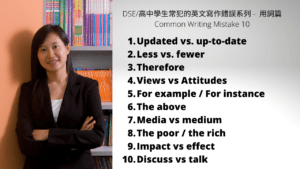IELTS 3 Writing Model Essay (Free sample)
Test 4 Task 2 Question
Present a written argument or case to an educated reader with no specialist knowledge of the following topic.
Improvements in health, education and trade are essential for the development of poorer nations. However, the governments of richer nations should take more responsibility for helping the poorer nations in such areas.
To what extent do you agree or disagree with this opinion?
You should use your own ideas, knowledge and experience and support your arguments with examples and relevant evidence.
You should write at least 250 words.
Test 4 Task 2 Model Essay by an Expert
In a world which is more and more connected, in which cultural and geographical distance is less of a barrier than ever before, developed nations must undertake a renewed commitment to aid in poorer nations – an activity from which they also have much to gain. This essay will examine three arguments in support of this commitment from economic, social, and ethical perspectives.
The major economic argument for aid is related to the so-called ‘development trap’ – as described by the economist Jeffrey Sachs – in which developing economies find themselves unable to grow from generation to generation because certain basic conditions are not met. Without outside help, these conditions keep reproducing themselves. Limited access to capital, corrupt governance, as well as poor healthcare and infrastructure are all elements that ensure this reproduction. The only way to promote growth – to end these cycles – is to encourage developed governments not simply to provide aid, but to substantially invest. If this were to happen, developed governments themselves might eventually earn returns on investment – one more reason such help makes sense economically.
Many social ills are also addressed by aid initiatives. The unfair treatment of women, for instance, is an area which investment in education can fix. Increasing female literacy rates and extending the period before marriage both empowers young girls and helps change social attitudes toward their sex. More, women who raise children are able to pass on the benefits of education, ensuring entire communities gain valuable skills and knowledge. The help provided by rich nations thus has the ability to change more that GDP values – social equity and tolerance are achievable goals for the foreign aid schemes of rich nations.
Related to the above are the ethical arguments for the provision of aid. We may debate about the economic advantages to global markets, but surely an empathetic appeal trumps all. What ‘responsibility’ means in this situation is – in part – a careful consideration of the role rich nations have played in creating the poverty of the global south. The excesses of colonialism and cold-war-era political strategies have left a legacy of poverty and violence. For instance, development struggles against the cultures of extremism caused by our own strategies of political intervention. In coming to understand our need to take responsibility, we should move beyond a simple sense of the need to help the poor. We must also realize that responsibility involves recognizing a debt that we have still to pay.
From a variety of perspectives, foreign aid simply makes good sense. A richer combined global community is the apple offered to us – and one without the social of inequities that follow on poverty.
(438 words)


